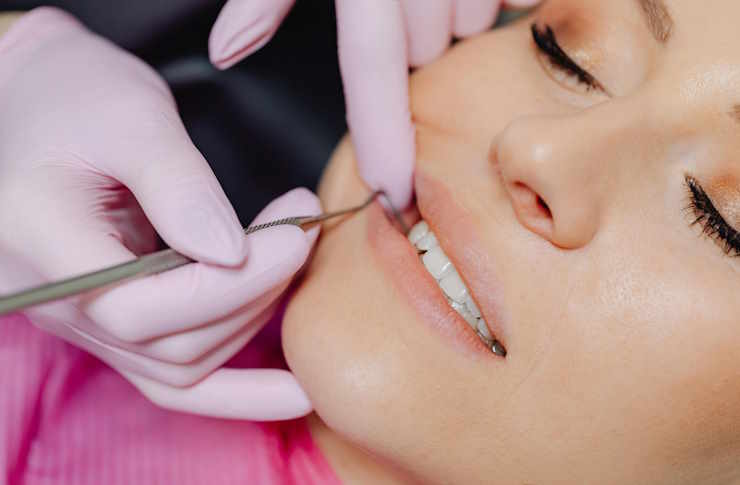What Seniors Should Know About Choosing a Dentist in 2025
Dental needs often change with age, making the choice of dentist especially important for seniors. Learn what older adults in the UK should consider, from experience with dentures and implants to gum health and preventative care, to maintain a healthy smile for years to come.

What are the best dental care options for seniors in the UK?
In 2025, seniors in the UK will have access to a range of dental care options tailored to their specific needs. NHS dental services continue to provide essential treatments, including check-ups, cleanings, and basic restorative procedures. However, many seniors may opt for private dental care, which often offers more comprehensive services and shorter waiting times.
Specialized geriatric dentistry practices are becoming increasingly common, focusing on the unique oral health challenges faced by older adults. These clinics are equipped to handle complex cases involving multiple health conditions and medications that can impact dental treatments.
Additionally, mobile dental services are gaining popularity, bringing dental care directly to seniors who may have mobility issues or live in care homes. This option ensures that even those unable to travel can maintain good oral health.
What tips should older adults consider when choosing a dentist?
When selecting a dentist in 2025, seniors should prioritize several key factors:
-
Experience with older patients: Look for dentists who have extensive experience treating seniors and understanding age-related dental issues.
-
Accessibility: Ensure the dental office is easily accessible, with ramps, elevators, and comfortable seating in the waiting area.
-
Comprehensive services: Choose a practice that offers a wide range of services, including preventive care, restorative treatments, and cosmetic procedures.
-
Technology: Opt for dentists who use modern technology, such as digital X-rays and intraoral cameras, which can make diagnoses more accurate and treatments more comfortable.
-
Communication: Select a dentist who takes the time to explain procedures clearly and is patient with any questions or concerns.
-
Flexibility: Consider dentists who offer flexible appointment times and emergency care options.
How important is denture and implant care for seniors?
Denture and implant care will remain crucial aspects of senior dental health in 2025. As more older adults retain their natural teeth or opt for dental implants, proper maintenance becomes essential for long-term oral health.
For denture wearers, regular check-ups are vital to ensure proper fit and functionality. Dentists can make adjustments to prevent discomfort and maintain optimal chewing ability. They can also advise on the best cleaning practices to prevent infections and extend the life of dentures.
Dental implants, while more permanent than dentures, still require specialized care. Regular professional cleanings and check-ups are necessary to prevent peri-implantitis, an inflammatory condition that can lead to implant failure. Dentists experienced in implant care can provide guidance on proper home care techniques and detect any potential issues early.
Why are preventive dental check-ups crucial for seniors?
Preventive dental check-ups play a vital role in maintaining oral health for seniors. Regular examinations allow dentists to detect and address potential problems early, preventing more serious issues from developing. These check-ups typically include:
-
Oral cancer screenings: Early detection significantly improves treatment outcomes.
-
Gum disease assessment: Seniors are at higher risk for periodontal disease, which can impact overall health.
-
Decay detection: Age-related changes can increase the risk of tooth decay.
-
Medication review: Many medications can affect oral health, and dentists can provide tailored advice based on a senior’s medication regimen.
-
Nutritional guidance: Dentists can offer advice on maintaining a healthy diet that supports oral health.
By attending regular preventive check-ups, seniors can maintain better oral health, which is closely linked to overall well-being and quality of life.
What dental services and costs can seniors expect in 2025?
In 2025, seniors can expect a range of dental services tailored to their needs. While exact costs may vary, here’s a general overview of services and estimated price ranges:
| Service | Provider | Cost Estimation (£) |
|---|---|---|
| Basic NHS Check-up | NHS Dentist | 23.80 - 25.00 |
| Private Check-up | Private Dental Clinic | 50 - 170 |
| Full Dentures | NHS Dentist | 269.30 - 300.00 |
| Full Dentures | Private Dental Clinic | 500 - 2,500 |
| Single Dental Implant | Private Specialist | 2,000 - 3,000 |
| All-on-4 Implants | Private Specialist | 5,000 - 14,000 |
| Professional Cleaning | Private Dental Clinic | 50 - 100 |
| Tooth Extraction | NHS Dentist | 65.20 - 75.00 |
| Tooth Extraction | Private Dental Clinic | 100 - 300 |
Prices, rates, or cost estimates mentioned in this article are based on the latest available information but may change over time. Independent research is advised before making financial decisions.
It’s important to note that NHS dental charges are subject to annual reviews and may increase slightly by 2025. Private dental costs can vary significantly based on location, expertise of the dentist, and the complexity of the treatment required.
Many dental practices offer payment plans or dental insurance options to help manage costs. Seniors should inquire about these options when choosing a dentist to ensure they can access the care they need without financial strain.
In conclusion, choosing the right dentist in 2025 will be a crucial decision for seniors looking to maintain their oral health. By considering factors such as specialized services, accessibility, preventive care options, and cost, older adults can find a dental provider that meets their unique needs and helps them maintain a healthy smile well into their golden years.
This article is for informational purposes only and should not be considered medical advice. Please consult a qualified healthcare professional for personalized guidance and treatment.




